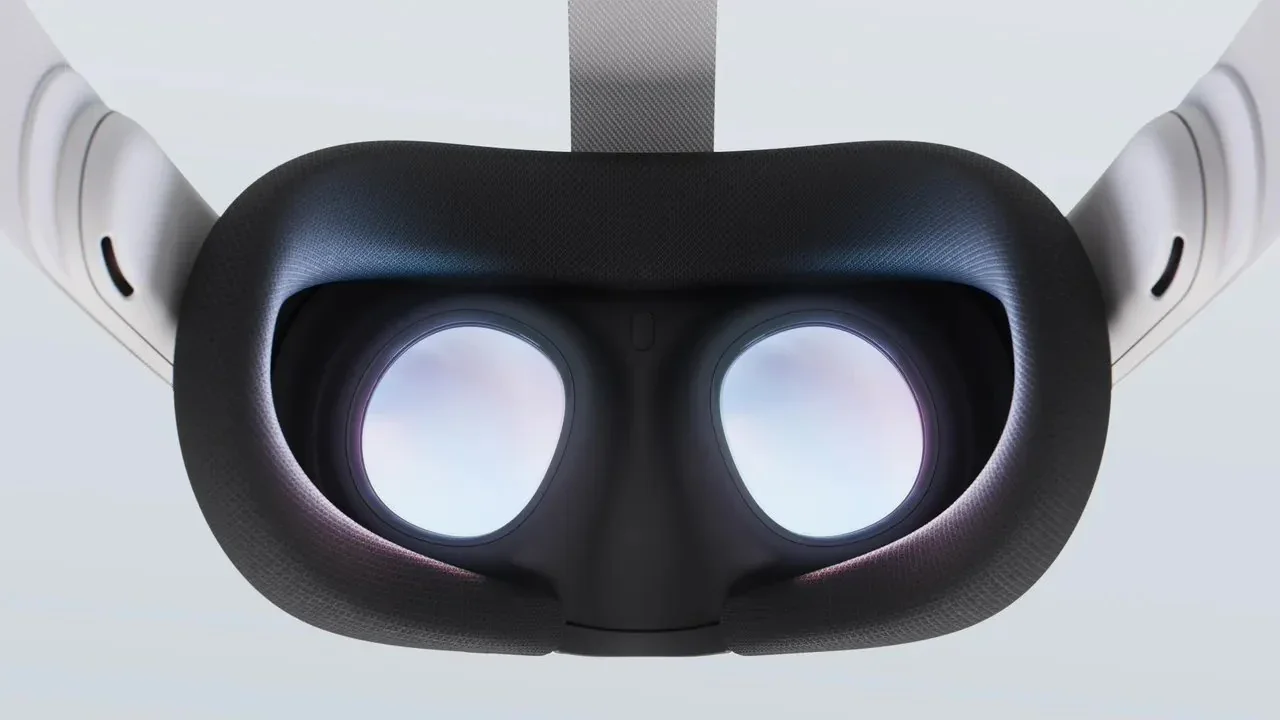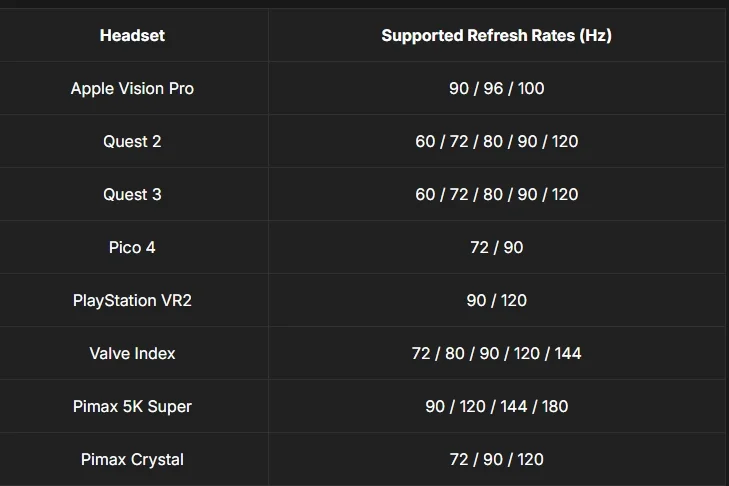March 19th News: A study from Xi'an Jiaotong-Liverpool University in China suggests that for most people, 120fps is an "important threshold" to avoid VR dizziness.

The research team has long been devoted to studying the effects of VR screen refresh rate, resolution, haptic feedback, stereoscopic vision, and other factors on users, as well as the correlation between these elements and simulator sickness. For this study, they used the PiMax 5K Super headset, which supports a maximum refresh rate of 180Hz, making it one of the VR devices with the highest refresh rates available on the market.
According to reports, the study recruited 32 participants aged between 18 and 51, with an equal split between genders. They experienced screen refresh rates of 60fps, 90fps, 120fps, and 180fps, and researchers compared the probability of participants experiencing nausea at different refresh rates. The results indicated that 120fps is an important threshold, with participants experiencing significantly less nausea at 120fps compared to 60fps and 90fps. When the refresh rate increased to 180fps, the reduction in nausea was minimal, suggesting that 120fps may indeed be the threshold.
However, it should be noted that this study was conducted exclusively on a specific headset device and it is uncertain whether the results apply to other devices. For instance, the PiMax 5K Super has a significantly wider field of view than common VR headsets, and there are geometric distortion issues at the edges of the screen. Previous research has shown that both field of view and geometric distortion can affect user dizziness.

Currently, standalone VR headsets that support a 120Hz refresh rate include Quest 3 and Quest 2, but this feature is limited to developer mode and has very low usage. This is due to the limited computing power of mobile chips, which restricts the rendering of each frame within 8 milliseconds, severely constraining game graphics quality and simulation complexity.
Most Quest 2 games operate at the default 72Hz refresh rate, while many new games on the Quest 3 have been upgraded to 90Hz. It may take quite some time before 120Hz becomes the mainstream standard for standalone VR.
For PC VR devices, using high-performance graphics cards can achieve 120fps rendering in some simple games like rhythm games (e.g., Beat Saber). However, for more visually complex simulator games, achieving this standard requires very expensive high-end hardware. For instance, the Valve Index supports a 144Hz mode, while the Pimax 5K Plus used in the study supports 180Hz.
Another important factor affecting frame rate performance is frame interpolation technology. This technique generates intermediate frames to make the motion appear smoother without actually increasing the rendered frame rate. For example, the PlayStation VR2 extensively uses frame interpolation to interpolate many games originally running at 60fps to display them at 120fps on a 120Hz screen. Quest also supports interpolation, but only for a few games, while on the PC side, interpolation can be enabled through software when the graphics card load is too high.
While it's unclear whether the results of this study apply to all headsets, it still serves as a wake-up call for the VR industry. The industry should not settle for the 90fps standard set by Oculus Rift and HTC Vive upon release, let alone the 72fps standard of standalone headsets like Oculus Quest. Just like resolution, frame rate should continue to improve to minimize VR motion sickness and enable more people to enjoy VR experiences to the fullest.
Source: IT Home



